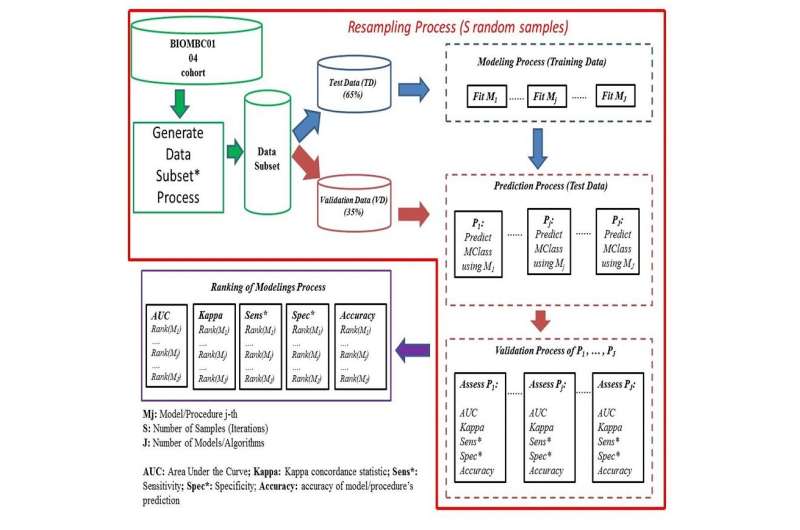ModGraProDep: Artificial intelligence and probabilistic modeling in clinical oncology

Improving the prediction of survival indicators in patients with breast cancer using tools from artificial intelligence and probabilistic modeling is the aim of ModGraProDep, an innovative system presented in a study led by Ramon Clèries, lecturer at the Department of Clinical Sciences of the Faculty of Medicine and Health Sciences of the University of Barcelona and member of the Oncology Master Plan/ICO-IDIBELL. The study has been published in the journal Artificial Intelligence in Medicine.
One of the applications of numeric modeling for clinical indicators on oncology is the creation of predictive models to help oncologists and doctors to classify and value future scenarios of evolution in the patients with cancer. In this context, the prediction of survival in patients with specific variables and ages is a decisive element to consider treatments and identify subgroups among the patients. However, this information is sometimes estimated through numeric modeling since there is not a large enough sample population to calculate these indicators specifically.
The application of the new ModGraProDep Technology (Modeling Graphical Probabilistic Dependencies) has led to two studies coordinated by the lecturer Mireia Vilardell, from the Section of Statistics at the Department of Genetics, Microbiology and Statistics of the Faculty of Biology of the UB, and the researcher Maria Buxó, from IDIBGI.
In the first case, ModGraProDep enables users to identify the structure of the database and to create a "synthetic" population of patients with the demographical features of the original cohort. With this new approach, they can identify potential patterns of patients and calculate indicators (for instance, the survival of a patient depending on the values of his or her variables). In a second study, ModGraProDep reveals itself as a new technology which can allocate values in a probabilistic manner in variables for which there was no information gathered yet.
The scientific team has designed a web application of great clinic interest in the field of oncology that enables having a prediction of indicators on survival and risk of cancer mortality -and other causes- of each patient for a maximum period of twenty years.
More information: Mireia Vilardell et al, Missing data imputation and synthetic data simulation through Modeling Graphical Probabilistic Dependencies between Variables (ModGraProDep): an application to breast cancer survival, Artificial Intelligence in Medicine (2020). DOI: 10.1016/j.artmed.2020.101875


















